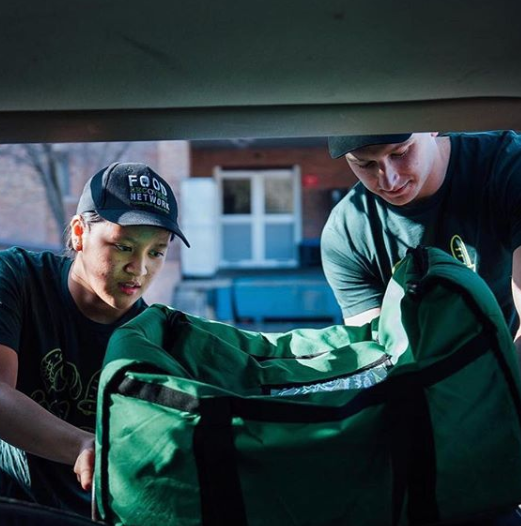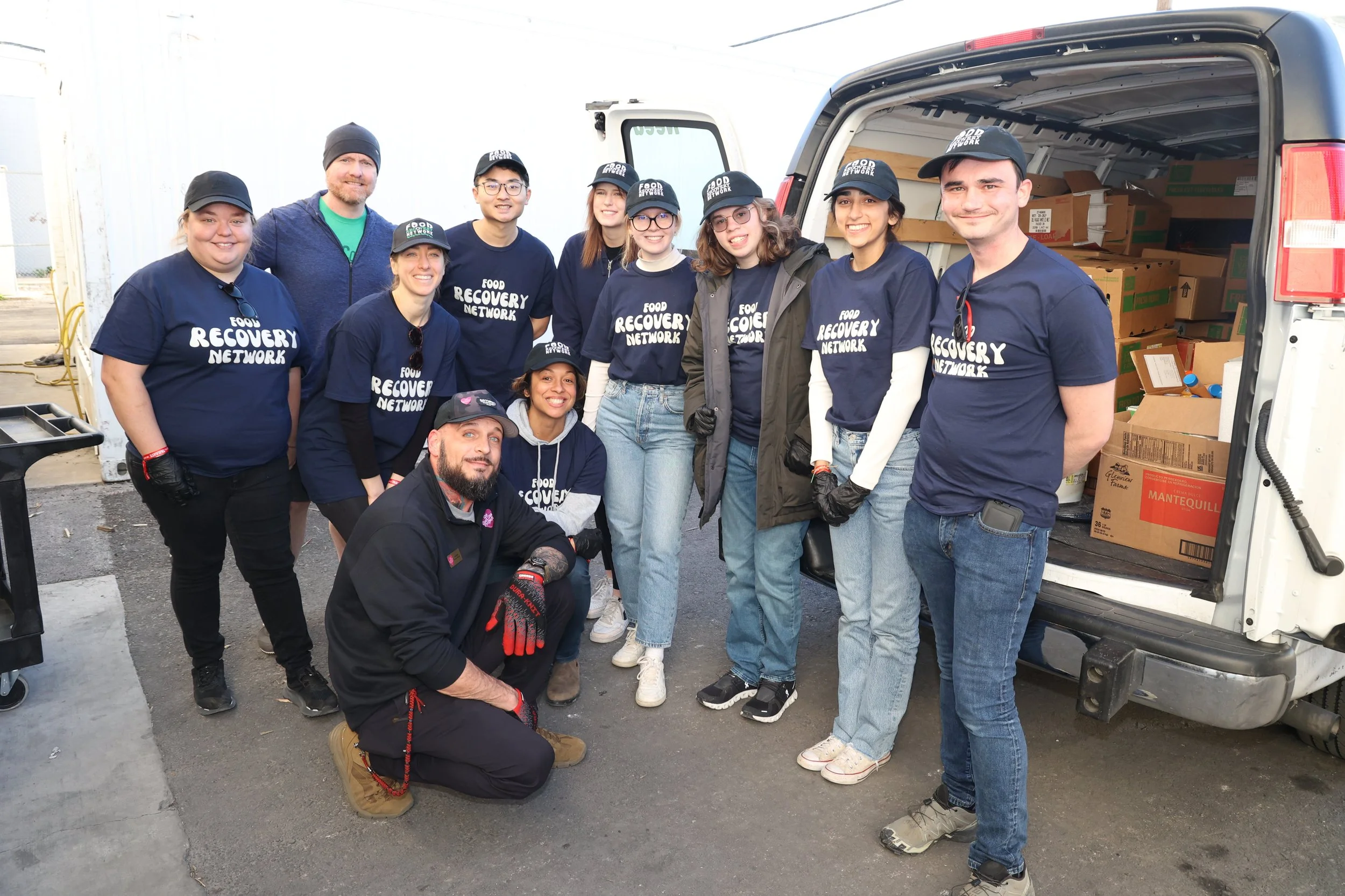Food Recovery Network is a people-powered movement. From the volunteers who glean from the historic orange groves at California State University-Northridge, to the “soup cuppers” at Cabrini University, our FRNds are changing their communities. Over the last six weeks, members of the FRN National Team and I had the opportunity to travel across the country and meet FRN student leaders at the nine Regional Summits in Tampa, Fla.; Nashville, Tenn.; Los Angeles; Houston; San Diego; Baltimore; Biddeford, Maine; Philadelphia; and Minneapolis. The ten Regional Outreach Coordinators worked tirelessly to coordinate action-oriented, engaging, and empowering regional gatherings.
Each summit was unique and reflective of the diverse community members who gathered together. Some summits catered to folks who were new to the network and looking to learn more about FRN and food recovery basics. Other summits featured roundtables for official chapters to discuss the programs they’ve refined over the last four years. Community members from various sectors shared their professional experience, like Barbara Heitman Bronstein, founder of Second Servings of Houston, a community food rescue organization. Bronstein explained how volunteers wearing branded vests helped boost the organization’s reputation in the community, leading to more partners and volunteers. Patrick Walsh, Pantry Manager at Martha’s Choice Marketplace in Norristown, Pa., shared a list of 10 things students could do to support their partner agencies; first and foremost: listen to their needs. Partner agencies’ needs vary greatly. The attendees at the summit in Tampa, Fla. spent a few hours completing various farm upkeep work at the Sustainable Living Project, a community garden and education center. In Baltimore, the attendees prepared chili and cornbread at Sarah’s Hope, a shelter serving homeless families.
Attendees at every summit had something from their food recovery journey to contribute to the conversation. Some chapters’ full leadership team was present; others were only able to send one representative to gather as much information and report back to the team. There were supportive staff advisors, graduating seniors passing the baton, and first-year students preparing to tackle the challenge of leading a chapter. Take Colin, Iowa State University ‘19, for example. He drove three hours to attend the FRN Summit in Minneapolis because he’s already thinking about the sustainability of the chapter. Colin wants to ensure the next team is as prepared as possible after he graduates. Alicia Magallanes, Basic Needs Coordinator at UC San Diego’s Student Affairs Case Management Services office, has spent her time as a staff advisor advocating for increased fund delegation to the FRN Chapter. She encouraged students to recognize who has access to school money and who can serve as your ally in those conversations. These are just two of the many wonderful FRNds I had the pleasure of meeting.
When I’m in the FRN National office, I’m usually interacting with students and answering their questions through email or on the phone. At the summits, I had the chance to look student leaders in the eye and recognize “we are in this fight against food waste and hunger together.”
This Network is comprised of chapters that are conducting food recoveries simultaneously, whether they're across town from each other or on opposite coasts of the country. We are feeding our communities together, yet we rarely get a chance to gather together, see our neighbors, and reflect on the power of this movement. As much as the summits were about community, they were also about sharing best practices. “Don’t reinvent the wheel, use the work of your peers” was a theme throughout conversations. Notes were scrawled on tables covered in paper, emails were shared, Facebook friend requests were sent – all in the name of learning from one another. The FRN National team is committed to developing the tools and resources that will allow our students to continue to connect and share ideas.
Robert Egger of LA. Kitchen reminded those of us at the LA Summit that “it’s never easy when you challenge the norm.” As we continue to show the United States what the largest student movement against food waste and hunger looks like, we are recognizing the power of our peers and taking every opportunity we can to learn from them. We’ll be FRNds forever.










